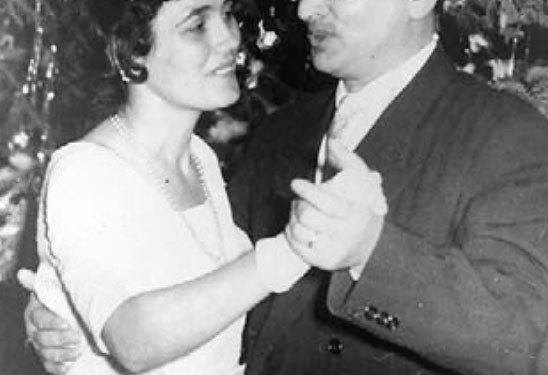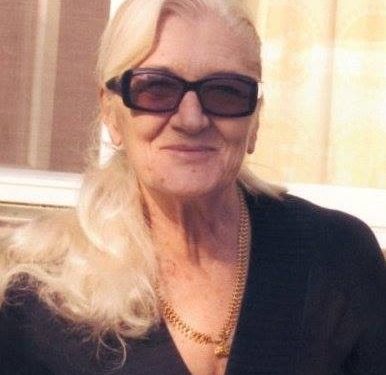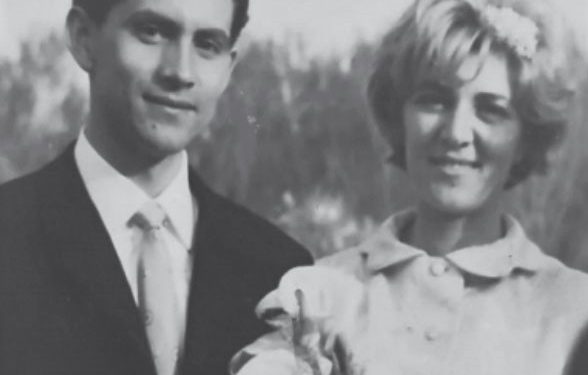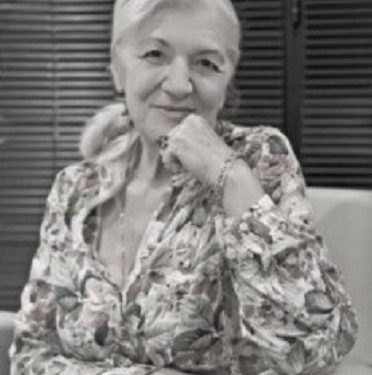From Uvil Zajmi
The rare testimony of the famous pianist, Bebi Kristidhi: “I will never forget a Russian woman, a prima ballerina, when she danced, the conversations were interrupted, absolute silence in the hall, as the audience had their attention on her…”!
Memorie.al / It have not been a club like the others. The intellectuals of the time had their point of view. Ideas about art and culture were discussed there and many people, when they passed by, would have liked to be part of that environment or to learn what was said at those tables. But there was another reason that made that club famous: New Year’s Eve. It was the atmosphere that was created, the spectacular celebrations, dances, balls, singers, orchestras, guests to attendees: intellectuals, writers, artists, actors, composers, directors, cinematographers, poets, painters, sculptors, journalists, personalities of art and culture. together with their families. But also foreigners, mainly Russians, those with residence or income and accredited in Tirana, even the diplomatic corps. A worldly environment, from foreign drinks, to Cuban Rum, gifts, elegant clothes, all styled for one night only. On New Year’s Eve, in a large, modern hall, the elite of the national art had unlimited fun. Those were the years when all the Albanian students had just returned from the countries of the communist East (or as they were called at that time “People’s Democracies”), after the official Tirana had broken relations with them.
Among them the Milkani family, Bebi and Pirro. My parents’ friends welcomed my interest and desire to write and remember the League Club of the 60s and 70s. In particular, Bebi would be very willing to confess, as she found this topic special, untreated.
Well-known artist, pianist with Western training and education, teacher, protagonist in many concerts, shows, interviews, television conversations, even today she remains that woman, vital, with energy that can only convey the spirit of an artist.
“That forgotten Club has seen many stories, people, and generations, many of them created their artistic careers, even family ones, there. It was in that club that artists, poets, writers, directors, painters, over the decades became friends, got to know each other and fell in love”, says the well-known artist.
Sitting next to the piano, at their apartment in the palace on “Rrugën e Durres”, in an environment that is both artistic and family, thanks to the hospitality they offered me, I felt quite comfortable.
The conversation between us, many times deviated from one direction to another, without realizing that time passed, as such was the pleasant atmosphere that the Milkani spouses created. Confessions, flashbacks with exciting memories, as this is also their endless artistic world: interesting subjects, events, infinity.
We even remembered Baby’s famous bicycle. As she passed, we all turned our heads to see that modern woman, quite different. Then Pirro’s surprise book “Unbelievable but true”, which surprised me beyond measure.
“Mrs. Baby, do you remember the League Club, the one near the theater”, I asked him first? “Everything”, he answered me, while standing next to the piano. “Even getting to know Pirro, starting at that artists’ club, at one of the fun nights of that time. He was the youngest, he didn’t speak”, recalls the well-known artist with a lot of nostalgia, about that past time.
She speaks slowly, she is focused, and she will not forget anything. Although there are many decades and countless years that have been left behind, the pianist still retains nostalgia, from attending that club admired by artists, colleagues, friends, with the desire to remember them all, but it is impossible. Many of them have even passed away.
Ms. Kristidhi, how do you remember the Link Club?
For many years, that beautiful hall of the League of Writers and Artists Club has served to meet and stay writers, artists, not only those from the capital, but also from other cities and districts, who came there with pleasure. , at least until around the 70s.
To then be transferred to the Former Headquarters of the Officers, united in a single building, League-Club. The headquarters of the League of Writers was previously at Vila e Musa Juka, in the alley next to the former “Kongresi i Përmet” music school, on “Rrugë e Dibra”.
How do you remember those environments?
It was a building that, together with that of the National Theater (or “Popular Theater” as it was called then), were part of the “Dopo Lavoro” complex, built by the Italians. A front entrance, with two doors, but one was used, the one on the left.
Then a lobby, and after that a huge high hall opened, with spaces, big wide armchairs, very comfortable to sit and stay. With paintings of large formats, placed on the walls, made by Albanian artists. Even today it remains like that, at least from the front view.
Your life cannot be understood without a piano, was there one in that building?
Yes, there was a piano in a corner to accompany the recitals, singers, violinists, instrumentalists, that is, the artistic events that were organized there. I was one of the performers.
I couldn’t leave without opening the lid, without touching her keyboard. In the evening especially, I sat down and her sounds were more inspiration to stimulate ideas, fantasies accompanied by conversations, passionate discussions until the late hours.
When was the peak attendance?
As an environment in the center of Tirana, it was very comfortable, and even if we had a little time, they would go there, even for a coffee or a business meeting. Intellectuals, writers and artists of the time came, but not only. That hall has served for meetings, the opening of visual exhibitions, promotions, diplomas, literary recitals, etc.
I remember quite well, when hundreds of students came in 1961, who returned from Hungary, the Czech Republic, Russia, Poland, after the break with the bloc of Eastern countries. Most of them, especially the artists, came there, giving life to the club. But also artists, those who had graduated from Western schools, Italy, France…
League Club is also remembered for the New Year’s holiday, how do you remember it?
True, that hall more than anything else culminated in New Year’s Eve. On December 31, everyone was at the League Club, where the traditional celebration was organized, which was very special. Lots were drawn, gifts were distributed to family members and celebrations were held until the early hours of the morning.
Well-known artistic personalities, even foreigners, who were in Albania at the end of the year, or the diplomatic corps, ambassadors with their families, who booked there, came. It was beautiful, there was dancing, singing, dancing, well-known singers and instrumentalists came.
How were the clothes?
Elegant clothing was mandatory. It was also a club that followed the fashion of the time. Everyone was getting ready for that night, mostly the girls, the women who would go in fancy dresses.
Men in elegant suits, bow ties, all designed for that night, that evening, that night’s ball. Even the elegant white gloves should not be missing.
But not only clothing, but also taking care of one’s appearance was important. For women especially. On “Rrugu e Dibra”, there was a permanent, where a well-known French hairdresser served, to whom women went. Especially artists were her clients. Think of the New Year’s Eve, what a flow there was in her bar.
From what you say, it must have been unimaginable for the rest of the Albanians…
It was a luxurious club with famous couples, where beautiful women stood out. Variety of dresses, with taffeta, nylon, velvet, according to the fashion, preferences of the time, of course beautifully sewn in tailors with tradition, private, experienced, newcomers or specialized during the time of Italy and very frequented those years.
Not everyone sewed to them. There were those that the clothes came from abroad, or they bought them in the foreign exchange shop, by order in the fashion one, since they were not found in other shops.
And during the year, how was it attended?
Of course during the week, more on Saturdays, they gathered in the evening. And interesting is the fact that not only artists, but also engineers, architects, doctors, lawyers, lawyers, well-known journalists with their families came there. Present as always, the piano, but also a small orchestral formation. Even on the weekend, there was no shortage of elegantly dressed.
Many Arts students came. Generations of students, boys, girls, who later became famous artists, their teachers wanted to come to that club, have fun, give concerts, etc. Together with them, I, as their pedagogue, accompanied them with great pleasure. The evenings in that environment were really attractive.
Doing a concert in League was an event, wasn’t it?
Giving a concert at the League Club was a big event, especially for those who wanted to be promoted, affirmed, especially students. “He gave a concert at the League Club”, it was said about the singers, both of light music, lyricists, instrumentalists, as an appreciation for the artist in the capital’s artistic circle.
What was served, besides coffee?
In the League Club, selected drinks were served, both foreign and domestic. It was served in the hall with a waiter. On the right was a large counter, where uncle Koçoja, the unforgettable bartender, was standing.
I remember that the well-known Cuban “Rum” was also offered, which came from Cuba, thanks to the friendship and good relations with Fidel Castro. As well as other drinks, from those of the country, of good quality. For us, the buffet was not important, but the attitude, the conversations, the friendships.
Did politicians come?
The beauty was that there was no talk of politics in that bar and politicians did not come. I can exclude some rare events that took place there. In general, a very warm atmosphere was created there.
We were friends, we knew each other, and it was impossible to think or talk about anything else but art talk. Politics was far removed from that environment and those people.
You said that there were concerts, but other cultural activities?
Quite a few, mainly exhibitions in painting. But it was rare when the exhibition of French carpets came. It was wonderful, a very interesting artistic genre, with handicrafts. The interest was great, but so was the care by such French masons, down to the smallest details.
Do you remember the elegant women of New Year’s Eve?
Not just one, but there were several, among them Ganimet Vendresha, a very elegant woman. Before one evening, when her husband was taking off her coat, I remember her cleavage never ending. Then Helena Kadare, very beautiful, Luiza Konda, Luiza Papa, Shpresa Nishani, Hamide Stringa, etc., etc.
In many cases that evening they came by taxi, he agrees, as a form that accompanied the worldly, sentimental part of that time, the mentality and passions of that generation.
What music was heard?
Favorites of course and without any discussion were the very beautiful Albanian songs of that period, which were also sung in festivals, columns, radio shows. But also foreign ones, Italian ones and until they left, famous Russian songs.
The club in those evenings had a rule: If anyone wanted to sing, play an instrument, recite, they were free. All the famous singers of those years, without exception, came there. And not only for New Year’s Eve, but also on other occasions.
What was dancing?
Of all, twist, tango, waltz, rhythmic music. Also present there were those from the Opera and Ballet, as well as dancers from the Ensemble, etc. Xhoni Athanas, with his wife Sekine, as well as Edi Luarasi with Mihallaq, famous singers, director Viktor Gjika, writers, painters, sculptors, composers, endless.
From Odhise Paskali, Fuat Dushku with Irene, the architect Koço Çomo, the painter Danish Jukniu with his wife Damuta, who was a Polish doctor, etc.
Were any foreign artists coming?
I don’t forget a Russian woman, prima ballerina, with her family, what a miracle she was when she danced. Invited there together with the dancer, Agron Aliaj, she possessed and expressed an extraordinary elegant line.
Accompanied by the piano, when she danced, conversations were interrupted; absolute silence in the hall and together with the sounds of the piano, the audience had their attention on her…!
I heard about a “matinee” at Hotel “Dajti”?
She is something else. In the “Dajti” Hotel, the bar-bar, “matinee” was served, very famous for the time and preferred by the intellectuals and artists of that period.
But that was not what made it special: At the “matinee”, which was organized only on Sunday morning, along with a coffee and something to drink, there was also dancing accompanied by a small orchestra.
When did the club begin to be abandoned?
After the 70s, leaving that mundane environment, coming to the former Officers’ House, joining a League-Club building changed everything.
After the 70s, many things were restricted for reasons that are known, related to the aggravation of political situations, where artists, writers, everyone, without exception, were undoubtedly at the center.
You said that you were a regular visitor to the Club…
It was in that Club, among others, that I gave a piano waltz concert, by classical and Albanian composers, special for the time and environment.
It was followed with great interest; it was very successful, as a pleasant surprise. I remember it with a lot of nostalgia even today. The club also had three rooms, as annexes where they worked with singers.
But it wasn’t just the piano and the friendships that made that Club special for you, right?
One night, when we were sitting on the couch, with students returning from their studies in Eastern countries, everyone passionately told stories, events from their student life, their loves.
Except for one who sat at the end, shy and didn’t speak: “You little one, – I addressed him, – why don’t you speak?”. This 22-year-old boy was called Pirro Milkani. It was 1961. An unforgettable memory.
Weird as a first communication…?!
Yes of course. Then, on January 11, we organized an evening at my father’s (Doctor Kristidhi’s) clinic with my classmates. Along with them came Pirro with the sculptor Thoma Thomai, he had many friends from Czechoslovakia.
Then the marriage came in April 1968 and for the honeymoon, we left for Fier with the film crew, which was preparing for the film “Why does this drum beat”.
A love story of two artists started right by the Artists Club?
Yes, this is true. Then followed a long life accompanied by intense activity, both family and artistic for both of them. The son, Eno, was born, and today we are grandparents, with grandson Marti and granddaughter Pati.
A life like a movie, with a love story of two artists, started right by a famous artists’ club. This is how I remember it, as it is still the same today after so many years.
Ms. Baby, a curiosity: your name is Margarita, but why did you have this name…?!
It has a special history. When I was born, my grandmother, my mother’s mother, came to me from Thessaloniki. His name was Vasiliqi, he graduated from the French High School and stayed here for a year. She wanted me to be named after her, but mom didn’t like it.
“Baby, baby”, that’s what they called me until she left. After he left, they named me Margarita. But, in the family environment, I was left with “Baby, Baby”. Even today, more people know me by this name. Memorie.al















